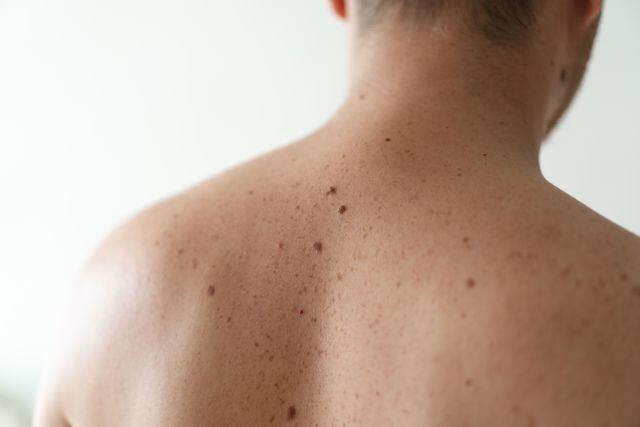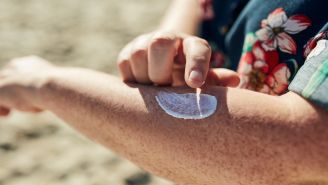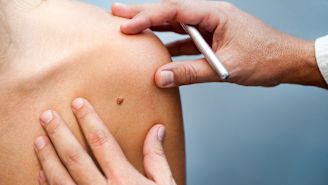More people are diagnosed with skin cancer each year than all other cancers combined. But despite being so common, it’s the most treatable cancer when it’s caught early.
If you have an abnormal skin lesion or mole, your doctor may recommend a skin biopsy for analysis. We talked with dermatologist Thomas Hocker, MD, of Advanced Dermatologic Surgery and Menorah Medical Center in Overland Park, Kansas, to learn more about skin biopsy procedures, so you know what to expect should you need one.
“Anytime we see a lesion that makes us concerned for the possibility of skin cancer, we recommend a biopsy,” says Dr. Hocker. “A biopsy is necessary in order to definitively diagnose something as being cancer or benign (not cancer).”
What happens during a skin biopsy?
There are several types of skin biopsy procedures, including a shave biopsy, skin punch biopsy and incisional and excisional biopsies. During a shave biopsy, the area of the skin that is showing signs of possible skin cancer is numbed, and then a thin, fine razor is used to remove the surface of the skin. The sample is examined under a microscope to definitively diagnose skin cancer.
“For most patients, it’s kind of the same level of skin damage as if you scraped your knee on the pavement,” says Hocker.
A punch biopsy may be done when a deeper sample of skin is needed. During this procedure, your healthcare provider (HCP) numbs the affected area and then uses a circular razor blade, like a little cookie cutter, to remove a deeper portion of skin to examine.
For larger spots that may have grown into deeper layers of the skin, the HCP may perform an incisional or excisional biopsy, in which a scalpel is used to cut out part (incisional) or all (excisional) of the tumor. For suspected melanoma, HCPs prefer to perform excisional biopsies, when possible.
Know your risks
As with any skin procedure, there are minor risks associated with a skin biopsy.
“Anytime you cut on the skin you will have some mark or some amount of scarring,” says Hocker. “For most people, it’s very minimal and the odds are high you won’t be able to see it after a few months.” You may also experience a little bit of bleeding immediately following the procedure.
To ensure proper skin biopsy healing, Hocker recommends gently washing the area with soapy water, applying petroleum jelly and keeping it covered.
Additionally, there is a small risk of skin infection. If you notice signs of an infection, such as excessive redness or swelling, pus from the biopsy site or a fever, contact your HCP right away. Antibiotics can be prescribed to treat the infection.
Skin biopsy results
You should get your biopsy results back in less than a week. Sometimes, a repeat biopsy is needed. Hocker says this can happen if your HCP is concerned there may be something more invasive deeper in the skin, or if the lab can’t conclusively tell if a lesion is truly cancer. If the biopsy comes back as benign, there’s nothing left for you to do. If it comes back as cancer, your HCP will review your treatment options.
See something, say something
Most skin cancer is almost 100 percent curable when treated early, says Hocker. That means it’s vitally important to protect and check your skin.
“We live in our own bodies, and even though dermatologists are well trained to recognize things, they don’t have the same benefit you do of seeing your skin every day over the course of many years,” says Hocker. “If you notice anything that’s new or weird or changing, you can do yourself a huge favor by getting in early to have it evaluated.”






